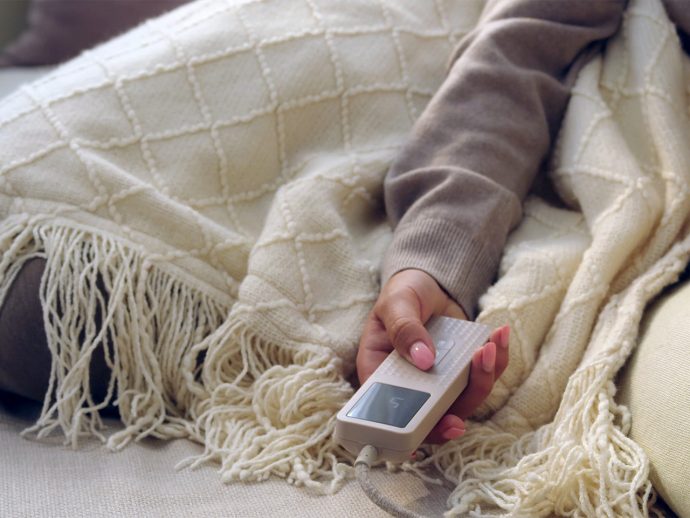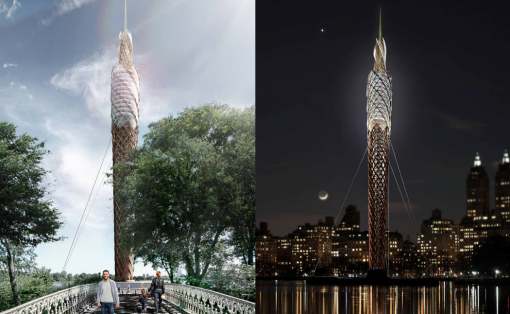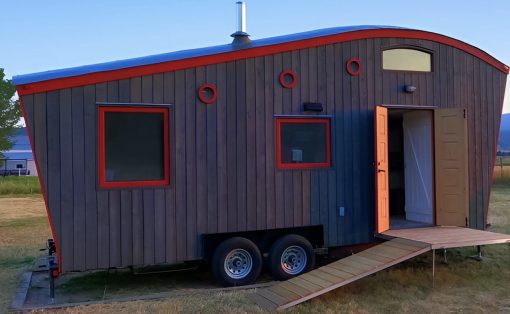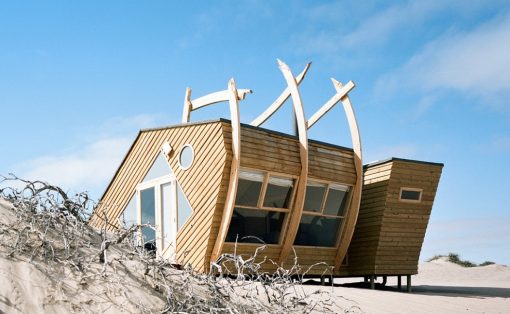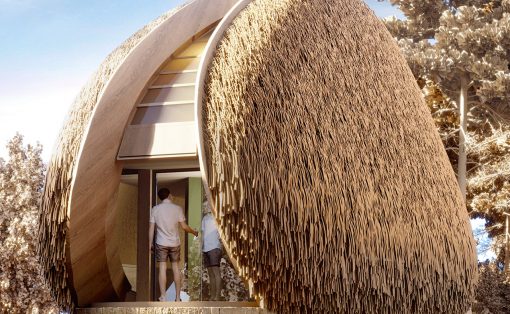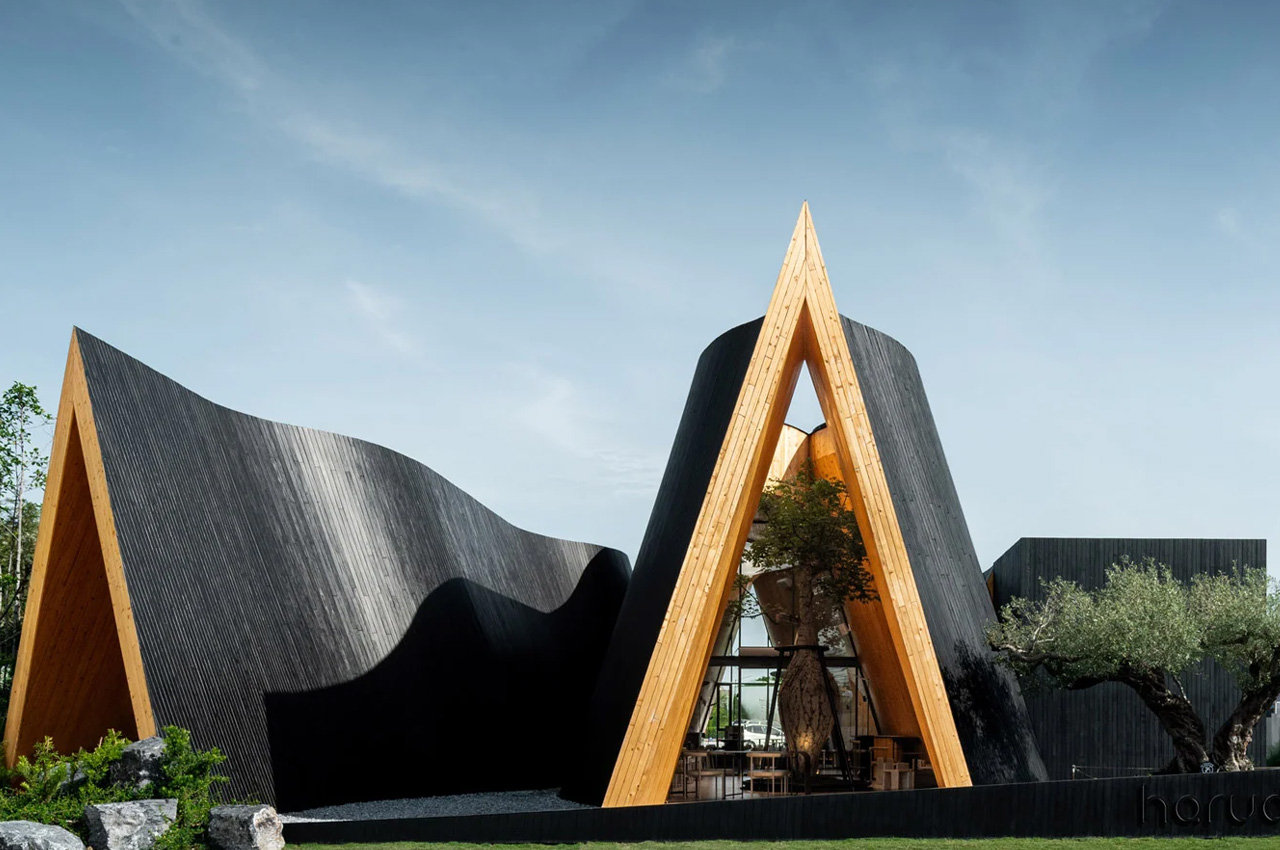
Dubbed the Harudot Cafe, this unique-looking structure in the beachside town of Chonburi, Thailand is designed by local studio IDIN Architects. The building is highlighted by gabled forms clad in blackened wood which are curved, and subtly pulled apart, to form a “dynamic and memorable” space for the cafe brand Nana Coffee Roasters, and the owner of the property. The curving form of the cafe was inspired by the owner’s “particular interest in unique plants”.
Designer: IDIN Architects
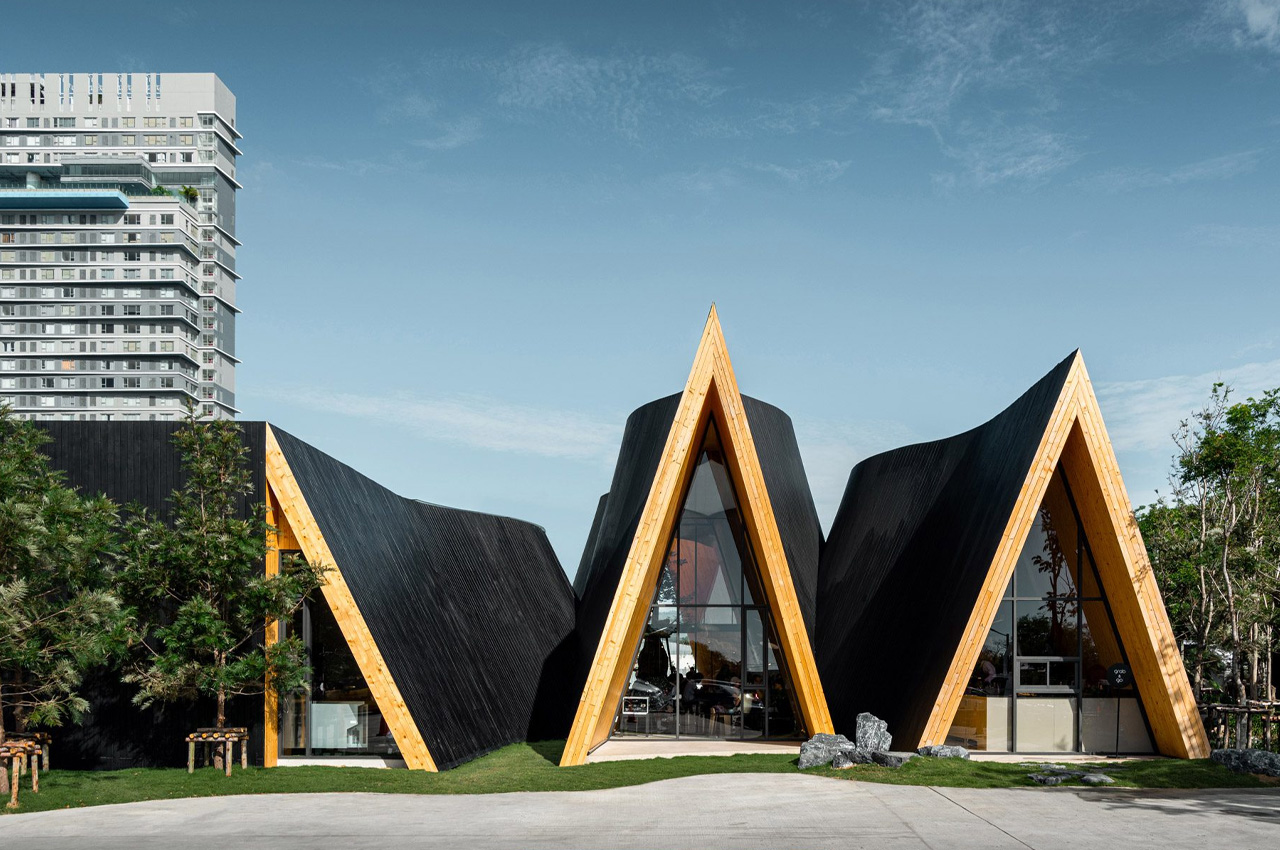
The Harudot consists of three interconnected buildings which hold a meeting room, kitchen, and toilets. The various rooms have been arranged in a rectilinear form to the north, while the seating area is situated to the south. The southern structures hold circular areas of planting, wherein the gable roofs pull open, allowing natural light to stream in from above. This unique roof opening also allows a large baobab tree to grow!
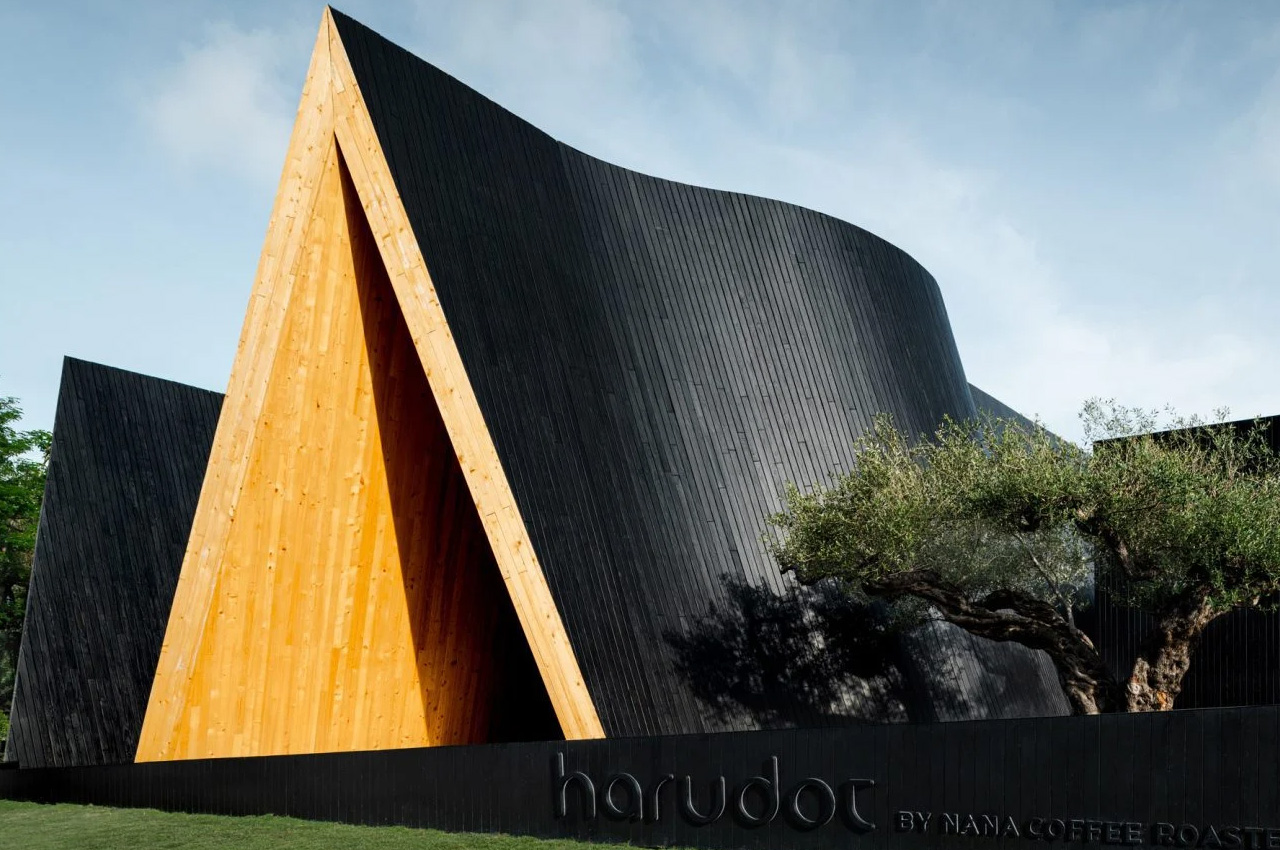
“The building is separated into smaller masses to make it more human-scale, which established different zones such as the bar, coffee drinking zone, a lounge, a meeting room, and restrooms. The giant gable roof form of each mass is pulled apart at certain parts, allowing the tree to penetrate through a void to the sky creating a semi-outdoor space underneath. It appears as if the seed of the baobab has been planted long before and grew out through the architecture as time passes,” said IDIN Architects.
You are welcomed into the two curving structures via large triangular entrances that accommodate full-height glazing incorporating doors that connect the various external seating areas to the interiors, forming a well-connected and free-flowing space. Although the three forms are distinct and separate on the outside, internally they are connected via large arched openings. The stone floor is marked with flowing lines and embedded text, which builds a serene sense of continuity.

Harudot’s exterior is quite appealing, as it is clad in vertical blackened timber planks that accentuate the cafe’s curving form, which contrasts with the pale timber and black furniture and fittings. The entire identity of the cafe is inspired by Japanese design, which IDIN Architects describes as “humble simplicity with attention to details”.


